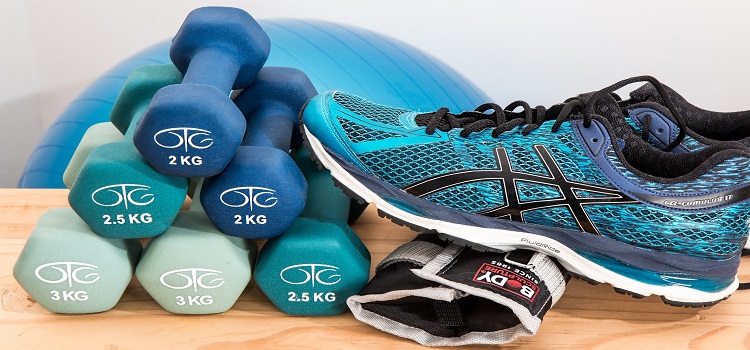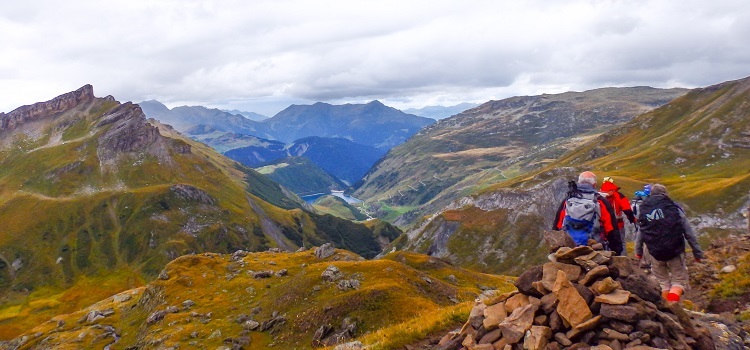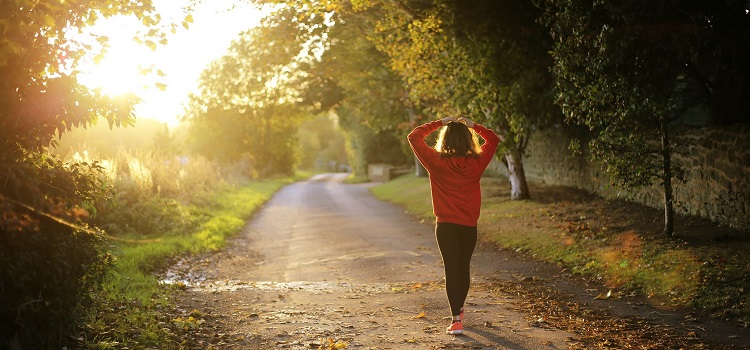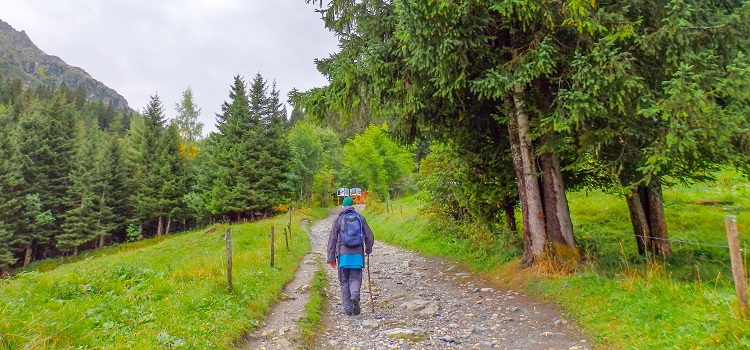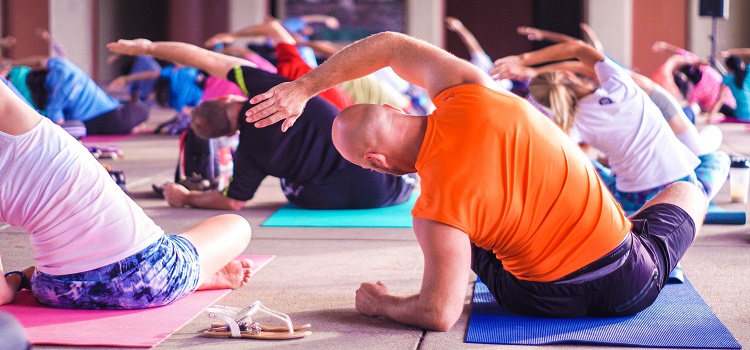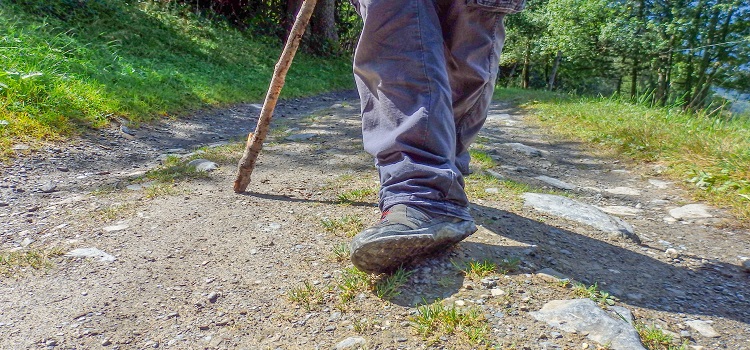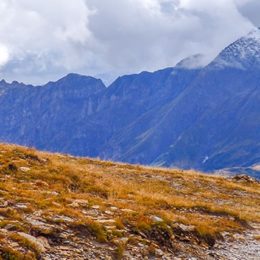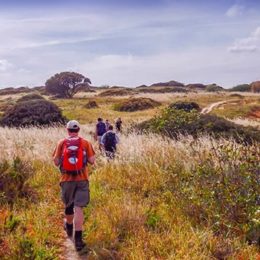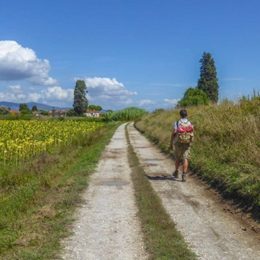Congratulations! You have decided to do one of the most beautiful and exciting hikes in Europe – the Tour de Mont Blanc!
This journey through three countries will blow your mind with amazing views and experiences. It is one of the most challenging walking holidays we offer, but this unique experience is on the bucket list of many keen hikers.
On our self-guided tour, you choose which route you take, and how long you spend walking and when you take breaks. You will be walking 10 to 25 km per day, sometimes with steep ascents. If you don’t want to use our luggage transfer service, you will have to carry a big backpack with you, too.
This may sound a bit daunting now, but there is no need to worry. Many hikers who complete the Tour de Mont Blanc are in their 50s or older.
The Tour is an Alpine trek, but a relatively gentle one. It accessible for “average people” too, as long as you prepare appropriately. Propper preparation is the difference between arriving at your destination swearing and grumpy, or tired but happy. It all depends on your training. Get it right and your Tour de Mont Blanc can be a totally blissful adventure.
When should I start training?
6 months before your TMB
If you don’t do sports regularly, now is the time to dust off the bike in your garage or those hiking boots, and start doing little trips. And if you are already a pretty active person, keep it up.
Start building your endurance by integrating more walking in your daily routine, for example, park further away from your work. Cycle to the nice neighbouring village on Saturdays or swim some lengths in your local swimming pool.
Don’t overdo it and expect to be able to hike 30 km the next weekend. You’ve got plenty of time until your Tour de Mont Blanc and your focus should be on walking regularly. After the first month, you should feel comfortable walking 5km, after three months you should be able to do 15km.
3 months before your Tour du Mont Blanc
There is still time until your Tour du Mont Blanc and even if you booked on shorter notice and didn’t train during the last few months, you can still get fit in time. Are you already quite sporty or have started to get more active during the last months?
Great! Then you can step it up now.
Walk, jog, cycle and/or swim more often. Try to go a bit faster and, most importantly, for longer. You should also start with some extra cardiovascular workouts now. Try to walk as much as you can, preferably every day. Aim for steeper, hillier hikes and cycles. One month before your TMB you should be able to complete a 25 km walk over hills with a small backpack.
6 weeks before your trip
Don’t give up! Your adventure is so close! It is the time to get yourself as ready for it as you can possibly be.
You should now be walking every day. Go to your office on foot or fit in a few laps after work.
Apart from that, add in a decent workout four days a week. Increase your cardiovascular workouts to at least 60 minutes twice a week. Some strength training will also be helpful, especially for your legs and core. Your walks should feature more inclines now, and on weekends aim for longer (ideally about 5 to 8 hours) hikes uphill. Add more weight to your bag as you become more comfortable.
Conquer your toughest, steepest local route – not only will it be good training for your Tour du Mont Blanc, but it will also feel amazing as you will recognize how fit you have become during the last weeks.
Start taking a full backpack on your hikes to get used to the weight. Using your boots and your walking sticks that you plan to take will help you get comfortable with them. You will also find any issues you have with your gear now, rather than halfway up the mountain. This means there is still time to exchange things.
Why should I train before my Mont Blanc Tour?
Endurance
As the Tour du Mont Blanc is an alpine long-distance walk, endurance is key. Even if you are the fastest sprinter in your town, you won’t enjoy this adventure very much if you have to catch your breath after every few steps.
Start going on regular walks as soon as you can and increase the difficulty according to the time left until your Tour. Explore different forms of endurance training, for example, cycling or swimming, whatever is the most fun and motivating for you. However, walking should always take up the main part of your endurance training.
Cardio
While endurance training will help you to “endure” the challenge of the long hike better and longer, cardio training focuses on increasing your heart rate. Cardio training makes you breathe heavily and directly strengthens your cardiovascular system (heart, lungs, blood vessels). This will help you on the steep hills where other people will be out of breath.
At three months before your Tour du Mont Blanc, you should start doing one hour of cardiovascular workouts two times a week. An example of a cardio training session could consist of 20 minutes on the cross trainer and 20 minutes on the treadmill, followed by some intensive core exercises. Alternatively, you can try HIIT (High-Intensity Interval Training) or circuit sequences. If you don’t have access to a gym or other machines, try going for a run or fast cycle. You should feel your breathing getting faster and your heart working harder.
Strength
A strength workout once or twice a week will work wonders, too. You could do this in your local gym or at home. There are lots of good workouts available on Youtube. Exercises like squats, lunges and the good old plank will not only make you stronger and improve your stamina but are also the best way to prevent injuries.
Yoga
You might ask yourself: I want to walk up the Mont Blanc, not achieve enlightenment – why should I do yoga? Well, yoga brings more benefits than you might notice at first sight. The different positions will help you become more flexible and improve core strength. This is very useful as you will achieve better mobility and also decrease the risk of injuries. Yoga will also make you stronger by training your deeper muscle tissue in a gentle way. Yoga also trains your mind. It will help you stay relaxed, connected to your body, and thinking positively.
Stretching
Don’t forget to stretch after your workout! Stretching is incredibly important for your muscles as it prevents them from shortening. Stretching is also the best precaution against sore muscles the next day. Look online for a set of gentle stretches you can do before and after your training sessions, as well as during your Tour du Mont Blanc.
Relaxing
Don’t overdo it. In the last couple of weeks, drop down to only training on four days of the week. The other three you should only do your regular walking. Otherwise, relax. You don’t want to start your Tour de Mont Blanc sore from your training.
No one knows your body better than you. Be kind and patient with yourself, you should not get to a point where you feel unwell.
If you have doubts about your health, consult a doctor before going on the Tour.
Nutrition – Fuel your body
Your body is a machine and our food is its fuel. In order to give your body a chance to function at its best and later to recover, food plays an essential role.
This is not a slimming diet. Eat properly before, during, and after hiking, especially carbs, proteins and healthy fat. You will be burning plenty of calories and you need to give your body the right nutrients.
A good meal before beginning your hike is important to give your body the energy it needs, otherwise, you will get tired and sore quite fast. Oats, muesli, or toast and eggs all make great options.
Snacks on the go are a good way of keeping yourself and your muscles motivated. Some great hiking snacks are:
- Bananas
- Granola/Energy bars
- Nuts and trail mixes
- Jerky
- Fruit/Vegetable puree
- Canned fish
- Peanut butter
- A small amount of chocolate or sweets
Stay hydrated
Even more important than food is hydration! To avoid a full and gurgling stomach, sip water consistently throughout your hike in small amounts. You should be drinking at least 2 litres of water per day.
If you are sweating lots, increase your water intake. You may also want to add electrolyte supplements to your water.
Mont Blanc Preparation Tips
- Use your work breaks for short walks.
- Integrate walking into your work commute. If you use public transport, get off at increasingly earlier stops or walk the whole way, if possible. Don’t park in front of your office but a bit further away than usual.
- Instead of meeting your friend in a café, grab your reusable coffee cup and take your coffee and some biscuits on a walk together! Despite the extra training, it will also improve your chit-chat, as it is proven that conversations get more profound on walks.
- Combine your hikes with special treats, for example, hike to your favourite restaurant in the neighbouring town or have a picnic in a very nice landscape.
- A simple smart-watch or step counter will help you recognize your daily achievements and motivate you to accomplish your next goal.
- Walking should not be an annoying task. It is a great activity for soul, mind and body and will improve your fitness and health. Focus on the positive aspects when you are struggling to motivate yourself.
Now nothing stands in the way of a great Tour de Mont Blanc! With the right training and fitness, you will be able to enjoy this adventure to the fullest and return home with everlasting, happy memories.
Happy training!
While you are preparing for your journey, check out our packing list for the Tour du Mont Blanc!



